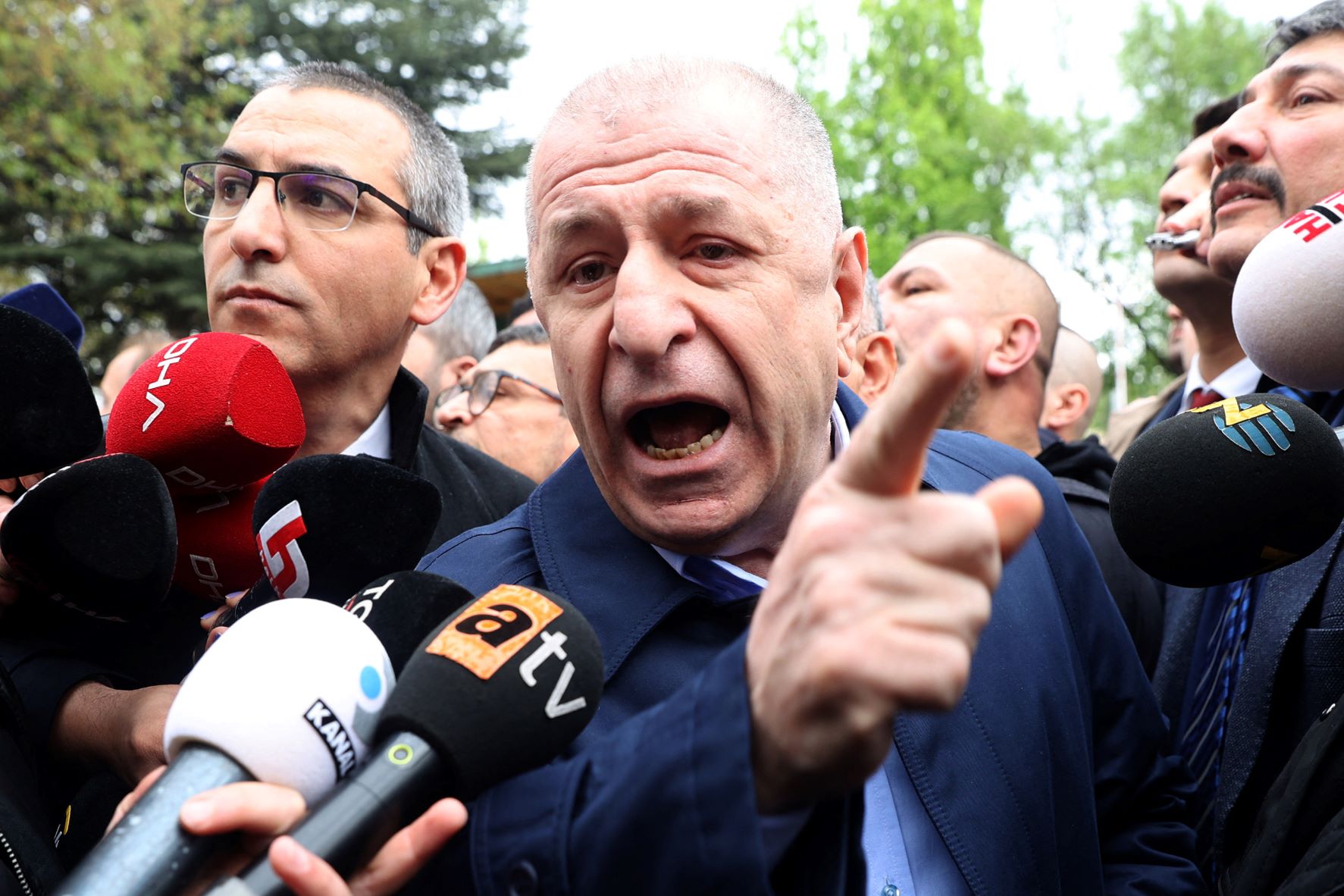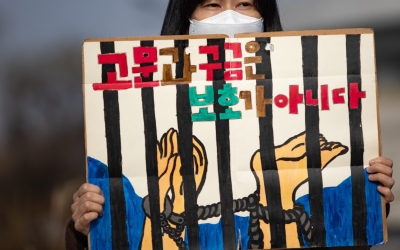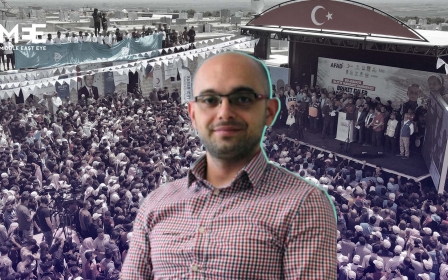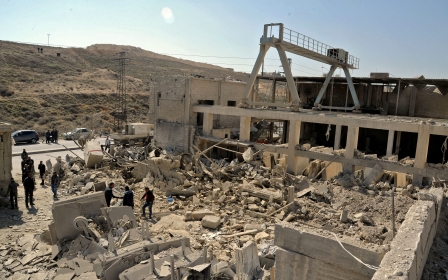Syrians increasingly choosing to leave Turkey as xenophobia grows
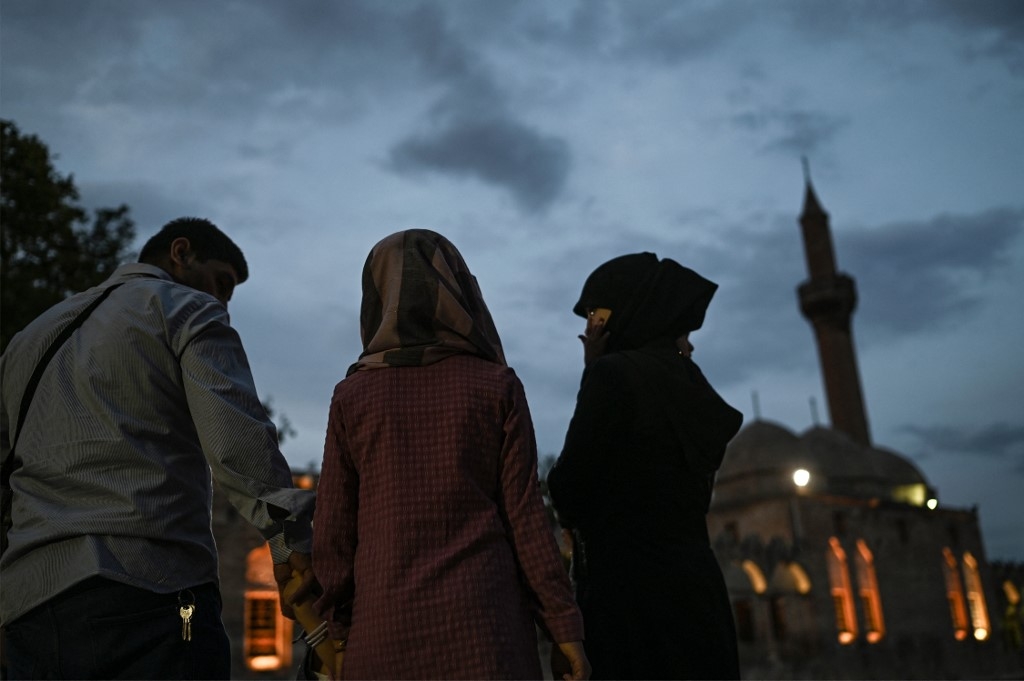
Life in Turkey is becoming increasingly unbearable for many of the more than 3.7 million Syrians living in the country and some are now choosing to leave rather than continue to put up with racism, joblessness and exploitation.
“I didn’t steal the Turkish jobs. I didn’t harass anyone, I have sisters of my own,” Abbas, 34, a Syrian refugee who recently left Turkey for France said, referring to recent accusations of sexual assault against a number of Syrians.
“I didn’t occupy anyone’s house. But I’m accused of all of these charges. And eventually I was assaulted. But I didn't even go to the police. It wouldn’t make a difference.”
'I don’t want to end up in a Syrian regime prison because of some Turkish politicians fighting'
- Adil, Syrian refugee
Turkey has been hosting Syrian refugees since the outbreak of war in its southern neighbour in 2011, but skyrocketing inflation accompanied by the rapid depreciation of the Turkish lira has caused resentment and xenophobia against the refugees to rocket to new heights.
Muhammed, 33, a Syrian engineer who left Turkey in February, said it had become impossible for him to stay in the Turkish border town Hatay - a region which has been historically disputed with Syria and which has long had a large Arab population - due to shifting social sentiment.
New MEE newsletter: Jerusalem Dispatch
Sign up to get the latest insights and analysis on Israel-Palestine, alongside Turkey Unpacked and other MEE newsletters
“We are grateful to the Turkish nation that hosted us for the last seven years but the harassment and lack of work were quite awful,” said Muhammed, who used to work as a seasonal worker in the fields, and in construction, as well as a reporter.
“Anti-refugee statements and the anti-refugee sentiment in Turkish society made it difficult for us to satisfy our basic needs. I had to leave for my family and children.”
Muhammed, who first crossed to Greece and then ended up in the Netherlands earlier this year, said it was almost impossible for him to find a job in the last two years as Turkish regulations banned him from leaving his city of residency for other towns, even for employment.
“Turkish businesses would pay us lesser salaries and wouldn't register us,” he added.
“When I look for legitimate work with legitimate salaries the harassments have become threats.”
Muhammed said he would have preferred to stay in Turkey but he was concerned at the possibility of forced return to Syria where he is on a terror list due to his opposition to President Bashar al-Assad's government.
Political capital
A number of opposition parties have sought to capitalise on the issue of Syrian refugees.
Following a campaign by the main opposition Republican People’s Party (CHP) that promised to send back the Syrians once they are elected, riots erupted in Ankara last August, with a Syrian man killing a Turkish man in a street dispute.
The CHP has since then softened its rhetoric, with leader Kemal Kilicdaroglu meeting with Syrian representatives to find a way to peacefully send the Syrians back to their country.
Others have also sought to capitalise on the issue, however, such as Umit Ozdag, a right-wing politician and the chairman of the Victory Party, who has created a media buzz in recent months by promising to send millions of Syrian, Afghans and Pakistanis back to their countries.
Despite their initial support for Syrian refugees, the Justice and Development Party (AKP) government has also promised to return around 1 million Syrians to the north of the country.
Shamil, 47, another Syrian refugee who has lived in Turkey’s Sanliurfa and Kilis for the last seven years, said the Turkish view on Syrians has starkly changed.
“I haven't had a job for the past three years, except the daily heavy-duty work such as portage,” said Shamil, whose actual profession is teaching English. “My boss, who used to try to talk to me in English, was giving me angry looks.”
After leaving Turkey in December for Germany, Shamil said he accepts that there has been some crime committed by Syrians in the country. “However we aren’t the ones who are responsible for every bad thing that is happening in Turkey,” he added. “Now every individual crime is on us.”
Fleeing to Europe
Much of the animosity towards Syrians is based on supposed differences in lifestyle and ethnic nationalism on the part of some Turks - yet Turkmens, an ethnically Turkish minority in Syria who escaped to Turkey, have also faced abuse.
Ahmed, 35, a Syrian Turkmen who used to live in Turkey until he left for the Netherlands in February, said he was subjected to racist treatment by those who were nominally fellow Turks.
“I was harassed for being Syrian, even though I’m a Turkman who speaks Turkish,” he said.
“It wasn’t possible to find a job in the last two years because employers started to imply that I don’t deserve a job just because I’m from Syria.”
Ahmed said he sought refuge in Turkey because that was the only option.
“If it were Canada in our north, we could have emigrated there,” he said. “I’m sure I would have been included in the list of people who would be deported to Syria one day or another. We are on the regime’s terror list due to our family members who have resisted against the regime in Homs.”
The Turkish government has announced plans to build housing and provide services in regions held by Turkish-backed forces in Syria to send back up to 1 million Syrians.
Last month President Recep Tayyip Erdogan announced that Ankara would launch yet another military operation to capture the northern Syrian towns Manbij and Tal Rifaat from the pro-Kurdish Peoples Protection Units (YPG).
However the refugees who spoke to MEE said they did not think those areas would be suitable for hosting many Syrians.
They pointed out that the areas were desperately impoverished with little outside investment and very limited room.
Adil, 30, who lives in Turkey and works as a translator, said he would prefer to go to Europe.
“It isn’t realistic to live in Turkey anymore,” he says. “As the economy goes bad, some people make targets out of us. We are scapegoats for every bad deed in this country.”
He added that he was harassed even though he is a Turkman from Syria.
“We live in more horrible conditions than a Turkish citizen yet the treatment against us is getting rougher every day. I don’t want to end up in a Syrian regime prison because of some Turkish politicians fighting.”
Note: The names of the Syrian refugees has been altered to protect their identity
This article is available in French on Middle East Eye French edition.
Middle East Eye delivers independent and unrivalled coverage and analysis of the Middle East, North Africa and beyond. To learn more about republishing this content and the associated fees, please fill out this form. More about MEE can be found here.


